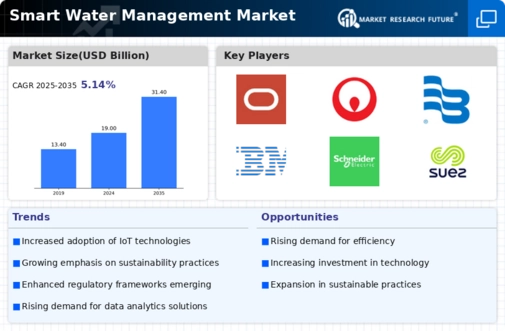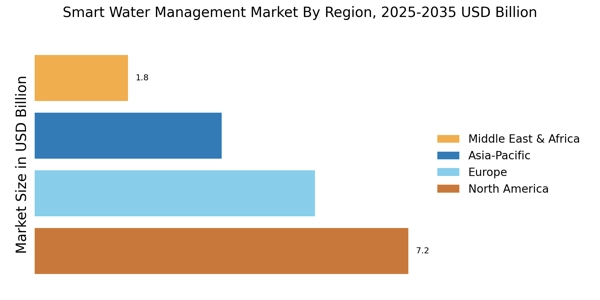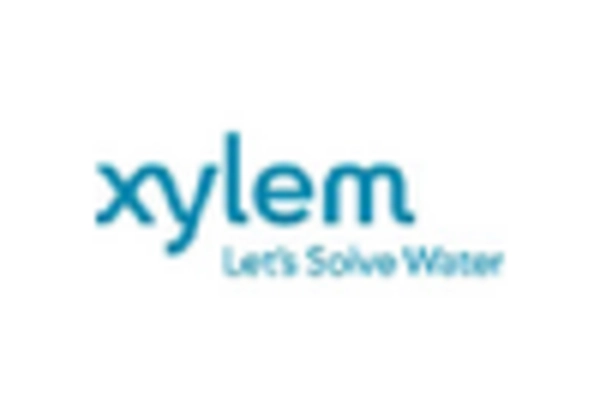Integration of Smart Sensors
The integration of smart sensors into the Smart Water Management Market is transforming how water resources are monitored and managed. These sensors provide real-time data on water quality, flow rates, and usage patterns, enabling utilities to respond swiftly to leaks and inefficiencies. According to recent estimates, the deployment of smart sensors can reduce water loss by up to 30%, which is crucial in regions facing water scarcity. This technological advancement not only enhances operational efficiency but also supports sustainable water practices. As the demand for efficient water management solutions grows, the Smart Water Management Market is likely to see increased investments in sensor technologies, further driving market expansion.
Rising Water Scarcity Concerns
The growing concerns regarding water scarcity are significantly influencing the Smart Water Management Market. As populations expand and climate change exacerbates water shortages, the need for efficient water management solutions becomes increasingly urgent. Reports indicate that by 2025, nearly 1.8 billion people will be living in areas with absolute water scarcity. This alarming trend is prompting governments and organizations to invest in smart water management technologies that optimize resource use and enhance conservation efforts. The Smart Water Management Market is likely to experience robust growth as stakeholders seek to implement solutions that address these pressing challenges, ensuring a sustainable water future.
Regulatory Support and Policies
Regulatory frameworks and policies are playing a pivotal role in shaping the Smart Water Management Market. Governments are increasingly recognizing the need for sustainable water management practices, leading to the implementation of stringent regulations aimed at reducing water waste and promoting conservation. For instance, initiatives that mandate the adoption of smart water technologies in urban areas are becoming more common. This regulatory support is expected to propel the market forward, as utilities and municipalities seek to comply with these standards. The Smart Water Management Market could witness a surge in demand for innovative solutions that align with these regulations, fostering a more sustainable approach to water management.
Increased Investment in Infrastructure
Increased investment in water infrastructure is a critical driver for the Smart Water Management Market. Many regions are recognizing the need to upgrade aging water systems to improve efficiency and reliability. Investments in smart water technologies, such as automated metering and real-time monitoring systems, are becoming essential for modernizing infrastructure. According to industry reports, the global investment in water infrastructure is projected to reach trillions of dollars over the next decade. This influx of capital is likely to accelerate the adoption of smart water management solutions, as stakeholders seek to enhance operational efficiency and ensure sustainable water supply. The Smart Water Management Market stands to benefit significantly from these infrastructure investments.
Technological Advancements in Water Management
Technological advancements are at the forefront of the Smart Water Management Market, driving innovation and efficiency. The emergence of advanced data analytics, machine learning, and artificial intelligence is enabling utilities to predict demand patterns and optimize water distribution. These technologies facilitate proactive maintenance and reduce operational costs, which is particularly beneficial for aging infrastructure. Market data suggests that the adoption of these technologies can lead to a reduction in operational costs by up to 25%. As utilities strive to enhance service delivery and reduce waste, the Smart Water Management Market is poised for significant growth, fueled by these technological innovations.

















